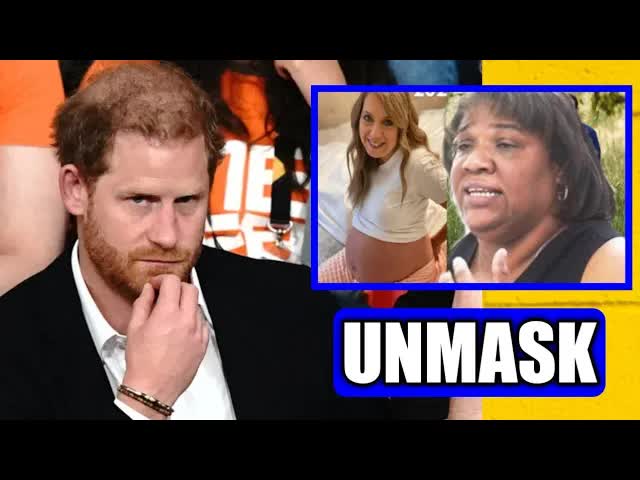A recent investigation by BuzzFeed News has shed light on the bizarre world of pregnancy conspiracies surrounding Meghan Markle, with her half-sister Samantha Markle at the center of the controversy.
The Duchess of Sussex has long been the target of false pregnancy rumors, allegedly orchestrated by Samantha Markle and a network of anti-Meghan individuals.
Samantha Markle, a self-described author, playwright, and psychotherapist, has been accused of actively spreading misinformation about Meghan’s pregnancies, particularly suggesting that her children, Archie and Lilibet, were not biologically hers.
The conspiracy theorists claim that the royal couple used surrogates to conceive and deliver their children, going as far as to suggest that the kids are not real and are instead portrayed by lifelike dolls during public appearances.
In a now-deleted tweet from her Athemarclesomy account, Samantha Markle demanded proof of delivery from Meghan’s womb for her children to receive titles, insinuating that surrogacy was involved in Archie’s birth.
Twitter suspended the account following the dissemination of false pregnancy claims, highlighting the platform’s stance against targeted harassment.
The saga took a legal turn when Samantha Markle filed a defamation lawsuit against Meghan, alleging that her sister had spread malicious lies about her.
Her lawyer, Douglas Cale, raised concerns about potential hacking of Samantha’s accounts, casting doubt on the authenticity of statements attributed to her.
The aftermath of the BuzzFeed News report remains uncertain in the context of the ongoing legal battle.
The phenomenon of fake pregnancy accusations is not unique to Meghan Markle, with high-profile women like Beyoncé, Kim Kardashian, and Sophie Hunter facing similar allegations in the past.
The scrutiny on celebrities’ pregnancies stems from a mix of fascination with public figures and skepticism towards their perceived authenticity, creating a breeding ground for conspiracy theories.
The obsession with debunking celebrity pregnancies often hinges on minor details like wardrobe choices or physical appearances, as seen in the meticulous analysis of Meghan’s public engagements by pregnancy truthers.
The scrutiny extends to royal succession rules, with concerns raised about Archie and Lilibet’s eligibility for the British throne given their birth circumstances.
Beyond the realm of celebrity gossip, the fixation on pregnancy and motherhood reflects broader societal attitudes towards female bodies and expectations post-birth.
The commercialization of maternity-related products and services underscores the pressure on women, both famous and ordinary, to adhere to unrealistic standards of beauty and recovery after childbirth.
In the case of Samantha Markle, her involvement in perpetuating pregnancy conspiracies has sparked debates about motives, credibility, and the impact of such narratives on public perception.
The blurred lines between reality and speculation in the digital age raise questions about accountability, ethics, and the power dynamics at play in shaping public discourse.
As the saga unfolds, the scandal surrounding Meghan Markle’s pregnancies serves as a cautionary tale about the dangers of misinformation, cyberbullying, and the weaponization of personal narratives for ulterior motives.
The intersection of fame, family dynamics, and online activism underscores the complexities of modern media landscapes and the challenges of navigating truth in a sea of competing narratives.
